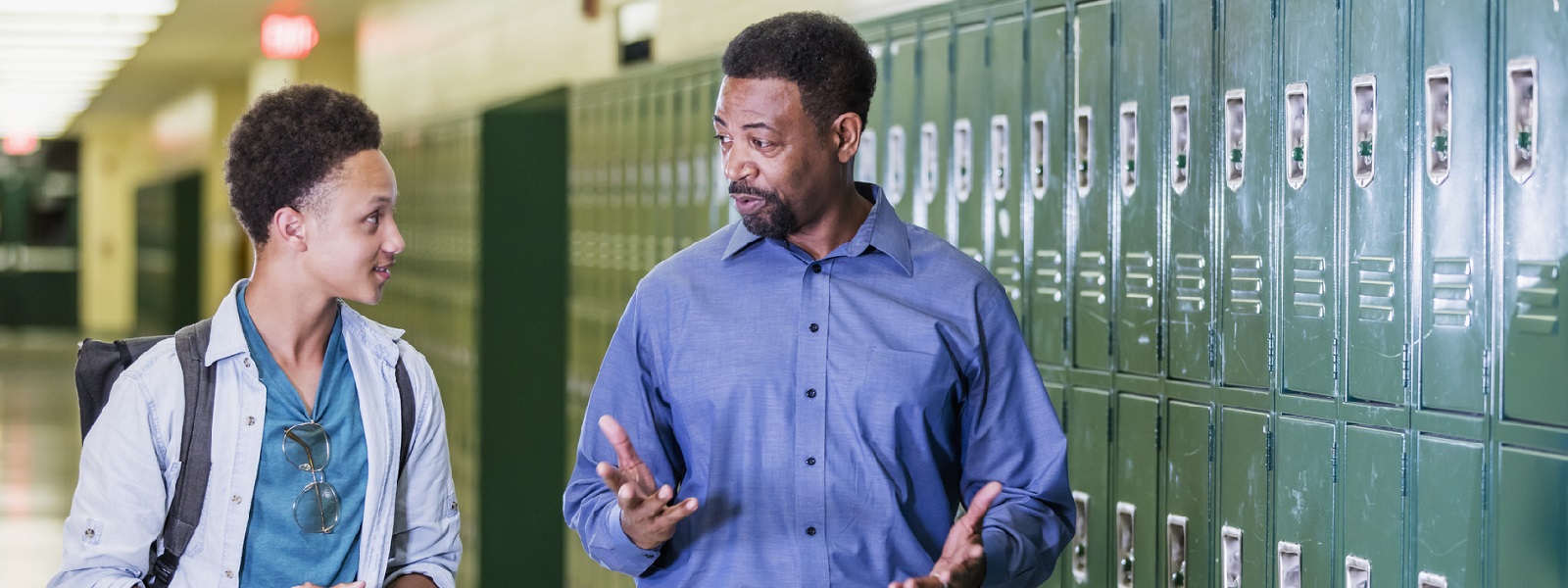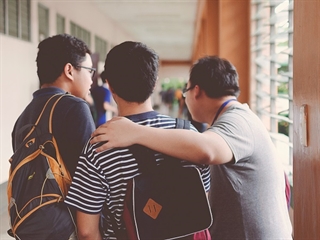Empowering Minds: Supporting Youth Mental Wellness

March 2, 2023
“When mental health is ultimately recognized as essential to physical health, not an extraneous element of it, then we will have access to true, complete, modern medicine.” – John V. Campo, M.D.
Remember when you were a teenager? Your schoolwork likely came second to your social life, that pimple would NOT go away before the dance, bullies were mostly left at school, and your parents just didn’t "get it."
Teenagers today face many of the same problems, except with the added burden of social media – a constant weight of peer pressure, bullies following from school to online, and their parents still don’t "get it." But you do get it, to a point. So why are so many more youth feeling persistently hopeless?
According to the CDC, 44% of American teenagers felt persistent feelings of sadness or hopelessness in 2021. This is the highest level ever recorded, and the pandemic certainly didn’t help. Data from the CDC shows us that more than a third of high school students reported they experienced poor mental health during the height of the pandemic.
or hopelessness in 2021. This is the highest level ever recorded, and the pandemic certainly didn’t help. Data from the CDC shows us that more than a third of high school students reported they experienced poor mental health during the height of the pandemic.
The details are staggering. Suicide is the second leading cause of death among youths 15 to 29 years old. Depression, eating disorders, and substance use are common among this age group. Most youth mental health goes beyond teenage angst – it’s an urgent need.
United Way of Greater Milwaukee & Waukesha County recognized the need for a system-level change for youth mental health, and that’s why we launched our newest initiative, Teen Mental Wellness: Empowering Minds. In early 2022, United Way brought together mental health experts to explore the topic of youth mental health within our community. Advice and guidance came from local, state, and national experts, as well as those with lived experience.
We can change lives of high school students by focusing on mental health promotion, early intervention, and treatment services. What makes this mental health initiative unique is that it will be centered in schools, which allow us to reach teens where they spend most of their day. By creating Mental Health Schools of Distinction, schools will measure success by achieving targeted milestones, based on Wisconsin’s Department of Public Instruction’s School Mental Health Framework: Building & Sustaining a Comprehensive School Mental Health System. We know that positive mental health allows a teen to fully explore who they are, and all teens can benefit from the full spectrum of mental health services:
- Prevention and Promotion, in which all students can benefit (those who have a mental health condition and those with non-diagnosed conditions).
- Early Intervention, in which students who need it can benefit from group therapy, individual therapy, daily check-ins, and mentoring.
- Treatment Services, in which students with acute needs can receive group/individual/family therapy, wraparound services, and reintegration to school after hospitalization, a huge step that teens won’t face alone.
Mental health is personal, and even though conversations around it are more  prevalent, there’s still a lot of help needed to reduce mental health disparities among students. We know that poor mental health diminishes quality of life, and is a root cause of poor educational attainment, poor financial stability, substance use disorders, and homelessness, among other things. By creating a system that stays at the school, students can continue to receive help for as long as they need it during some of the most vulnerable years of their lives.
prevalent, there’s still a lot of help needed to reduce mental health disparities among students. We know that poor mental health diminishes quality of life, and is a root cause of poor educational attainment, poor financial stability, substance use disorders, and homelessness, among other things. By creating a system that stays at the school, students can continue to receive help for as long as they need it during some of the most vulnerable years of their lives.
Everyone knows someone who has been impacted by mental health conditions. According to the World Health Organization, half of all mental health conditions start by age 14. Most cases go undetected and untreated until many years later or sometimes not at all. Through United Way’s Teen Mental Wellness: Empowering Minds initiative, teens and their families will have access to healthier school environments.
Afterall, mental health is not a destination, but a process. We truly "get it."
Are you in crisis? If you or someone you know needs support now, reach out to the 988 Suicide and Crisis Lifeline. Call or text 988, or chat 988lifeline.org.
Interested in supporting Teen Mental Wellness: Empowering Minds?
Click here to donate.
For more updates on Teen Mental Wellness: Empowering Minds and other United Way initiatives, follow us on Facebook, Twitter, Instagram, and LinkedIN.

Have something to say? LEAVE A COMMENT:
Your email address will not be published. All fields Required.
United Way of Greater Milwaukee & Waukehsa County blog and social media presence is designed as a source for information, sharing and collaboration about United Way and health and human service related topics. As part of our commitment to our readers, we expect all posters to abide by the following rules:
• Posts and comments should be on topic, conversational, and serve to educate or entertain
• Posts and comments may not be unlawful, fraudulent, threatening, libelous, defamatory, discriminatory, harassing, obscene or otherwise rude or in poor taste
• Posts and comments may not be used for any commercial purpose or otherwise to promote any outside organization or its activities
United Way of Greater Milwaukee & Waukesha County reserves the right, at our discretion, to remove any post or to revoke a user’s privilege to post to our page. Comments found to be in conflict with the guidelines above will be removed promptly.
Comments are not necessarily those of United Way of Greater Milwaukee & Waukesha County and its employees and we do not guarantee the accuracy of these posts.